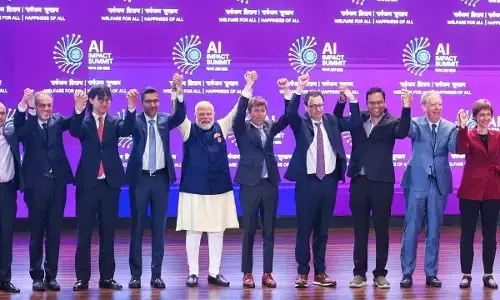Maharashtra push for better use of pharmacists

Maharashtra government is gearing up to create the post of ‘Clinical Pharmacist’ in government hospitals as per the Pharmacy Practice (Amendment) Regulations, 2021, introduced by the national pharmacy education regulator the Pharmacy Council of India (PCI).
The Maharashtra government is gearing up to create the post of 'Clinical Pharmacist' in government hospitals as per the Pharmacy Practice (Amendment) Regulations, 2021, introduced by the national pharmacy education regulator the Pharmacy Council of India (PCI). PCI introduced PPR (Amendment) 2021 by amending Pharmacy Practice Regulations (PPR) 2015 for notifying Doctor of Pharmacy (Pharm D) as the basic qualification for the post of clinical pharmacist in hospital settings.
The Maharashtra government's decision to create a post of 'Clinical Pharmacist' in government hospitals comes after a delegation of National Doctor of Pharmacy Union (NDPU), representing Pharm D professionals in the country, met Tanaji Sawant, Maharashtra minister for Public Health and Family Welfare and urged him to create clinical pharmacist posts at government hospitals as per the PPR (Amendment) 2021. The minister is reported to have assured the delegation led by NDPU national president Dr Ramprasad Kakasaheb Nagare of issuing a notification to create clinical pharmacist posts in hospitals and invite applications from Pharm D graduates to fill vacancies of clinical pharmacists in the coming months. The minister is reported to have assured that the recruitment process will start in the state at the earliest.
It is a fact that PCI introduced the Pharm D program in the country with much fanfare in 2008 with the main objective of imparting the necessary training and skill to undertake pharmacy practice in the field of patient care. Currently, other pharmacy degree courses are having industrial orientations. The growing need for specialized knowledge of drug prescribing ability, expertise in adverse drug reactions and knowledge of patient counselling in the community is the future opportunity of the new careers to the pharmacist.
The Pharm D programme combines rigorous basic science education with extensive and varied clinical experiences so that graduates will be prepared to contribute to revolutionizing the future of health care through new discoveries and skin and venereal disease innovations to improve patient life. The curriculum was designed to produce clinically competent pharmacists who can assume expanded responsibilities in patient care and assure the provision of rational drug therapy. The government introduced this 6-year course as the role of a pharmacist has been undergoing major changes world over in the wake of notable progress made by the pharmaceutical science and education.
A pharmacist is a vital link in the physician-patient chain and he is expected to play a key role in the dissemination of pharmaceutical knowledge. In India, although pharmaceutical industry has advanced over the last more than three decades, the pharmacist continues to be a salesman in a retail pharmacy. The Pharm D was introduced in such a background to change this image by raising the standards of pharmacy education to produce world class pharmacists. At present, over 230 colleges are offering Pharm D program and the number of graduates is increasing every year.
But, the job prospects are far and few between as the government did not create a cadre to them, though they fall under Clinical Pharmacist cadre. It was under this background, the PCI introduced Pharmacy Practice Regulations 2021 by amending PPR 2015 on June 30, 2021 notifying Pharm D as the basic qualification for clinical pharmacist post. Through this amendment, the working relationship of a clinical pharmacist has been defined wherein the qualification criteria, scope and complexity of work as well as duties and responsibilities of the clinical pharmacist has been mentioned. Even though it is more than a year since the Pharmacy Council of India (PCI) notified the post of clinical pharmacist (CP) with Pharm D as basic qualification, the Union Health Ministry is yet to come out with a legal framework enabling states and Union territories to create CP posts in healthcare settings.
It is a pity that the euphoria created over this course is petering out as the Pharm D graduates are finding it difficult to get proper jobs after studying for six long years. Countries like US, UK, Canada, New Zealand, Portugal, Ireland and even Ethiopia have recognised well reputed courses like Pharm D and clinical pharmacists are an integral part of the healthcare system and work along with physicians and nurses efficiently. It is an irony that while the government introduced Pharm D to create world class pharmacists, it is not utilising their services properly. The Maharashtra government has taken the initiative. Now, other states should follow Maharashtra in creating post of 'Clinical Pharmacist' for Pharm D graduates.
(The author is a freelance journalist with varied experience in different fields)




